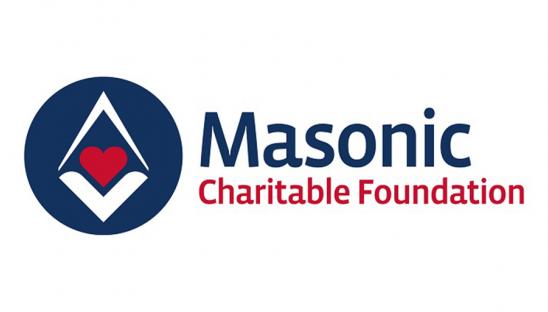
Developing an LGBTQ+ equality and inclusion culture

Find out how ellenor hospice is promoting LGBTQ+ equality, diversity, and inclusion with the help of a specialised job role.
Title
What's on this page
Project and outcomes
Project Overview
In 2021, ellenor hospice identified the need for an Equality, Diversity and Inclusion (EDI) Project Consultant. To fund the role, they successfully applied for a grant from the Masonic Charitable Foundation (MCF) via the Hospice UK Grants Programme. This meant they were able to employ Anna Willson to help promote equality and inclusion across their services. LGBTQ+ inclusion was one of Anna’s focus areas.
The hospice conducted an audit and gap analysis of its EDI processes to find out what was working, what wasn’t, and what required improvement. They created an LGBTQ+ delivery plan using:
- the results of the audit and gap analysis
- data analysis
- best practice advice
- local and national research.
This aimed to promote equality and inclusion within the hospice for this particular community.
Outcomes
Work to review and rewrite policies and develop staff training is ongoing. This has been positively received so far, and several staff have expressed an interest in the project. The ultimate aim is to promote a fully inclusive culture within the hospice. Many staff say they now feel more empowered and able to talk to colleagues about parts of their life that they previously felt unable to share.
Ellenor took part in its first Pride parade in 2022. The hospice is attending again in 2023 to march alongside the LGBTQ+ community and showcase their service. Being part of Pride helps ellenor increase visibility of their services to local LGBTQ+ people. It confirms that the hospice is there to provide a safe, non-judgemental, space for patients and families who need their support.
During Pride 2022, the hospice featured on an LGBTQ+ radio station (GlitterBeam). It has also released a two-part miniseries of the ellenor podcast focused on the LGBTQ+ community’s views on death, dying and hospice care. The mini-series was well received by members of the local community and staff. The Hospice plans to re-visit these discussions with various members of the LGBTQ+ community during 2023/24.
Facilitators, challenges and advice
Key Facilitators
The hospice started this work from scratch, rather than opting to adapt existing policies. From the very beginning the team created new links with various local LGBTQ+ networks. Building new processes from the ground up meant they could more easily follow research and best practice. It also meant they were learning as they went along.
Relationships and partnership building are a key part of the EDI project. One of the primary relationships that the hospice has built is with Kent Police, who have won multiple awards for their EDI work. This was easier because a member of staff at ellenor already had contact with a police officer who is an LGBTQ+ advocate and part of the queer community. The officer was able to link ellenor up with local LGBTQ+ groups and networks that the hospice didn’t know existed. These groups could survey the community on the hospice’s behalf.
The hospice has peer support from several external organisations, which are very helpful. This includes North East London Foundation Trust, who have won awards for their EDI work.This support and oversight has allowed the hospice to build stronger relationships in the community. It also means they can sense check the aims of their project.
Challenges
The majority of people who need care from ellenor are from an older generation. The life experiences of older LGBTQ+ people may make them less inclined to open up about their identity. The hospice is working hard to find ways to engage with this group.
There are a lot of clinical considerations for promoting LGBTQ+ inclusion that the hospice hadn’t initially thought of. This was particularly the case for trans and gender diverse people. It has been important to get advice from clinicians to make sure staff fully understand the implications of certain medications and treatments. Having support from a member of the transgender community via Kent Police was incredibly beneficial.
The hospice collects limited demographic data from its donors. This makes it difficult to get a full picture of who is engaging with them across the full range of services. The hospice is looking into how best to create a data rich environment that can help inform service development.
Tips and advice
The little things are important! Things like knowing LGBTQ+ terminology and doing a bit of research before you contact any networks are important. These things may seem small, but they make a big difference and help make the right first impression.
Don't try to reinvent the wheel – you don’t necessarily have to conduct in-depth research in your local area if it’s already been done on a national level. Just make sure you ask the community for their thoughts before implementing anything.
Take a ‘lift and shift’ approach – find out where other organisations are doing great work and adapt it to suit your hospice.
People are often so scared to say something wrong that they say nothing at all. If you do happen to offend someone just be open and honest. Apologise and explain that you want to learn. That way, people are usually willing to help you understand.
Remember that you need to break down barriers around death and dying, not just LGBTQ+ topics. Many people are still reluctant to talk about end of life care in general, so it’s important to make sure that everyone is as comfortable as possible when having these important discussions.
Future development
The hospice would like to be included on the LGBTQ+ safe space directory run by their local Pride group. It plans to arrange for people from the LGBTQ+ community to visit the hospice and feed back on their experience. Anna is exploring how she might turn experiences from patients and staff into case studies to help share best practice.
The hospice is also looking to continue its presence at local Pride events, by re-visiting Gravesham Pride. Hopefully they'll be at Dartford Pride too in the future.
Ellenor aims to build a more formal network of stakeholders for its LGBTQ+ inclusion work, both internal and external. This will enable Anna and the team to make their own approaches rather than is relying on the good will of other local organisations.

Acknowledgements
We would like to acknowledge the generous support provided by the Masonic Charitable Foundation through the Hospice UK Grants programme, without which this project would not be possible.
